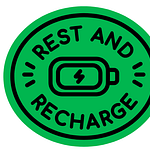The Committee of Advertising Practice is considering a complete ban on advertising unhealthy foods to children. This is to reduce childhood obesity. The group is consulting on a plan to restrict the promotion of foods high in fat, salt, and sugar to under-16s.
A ban on Unhealthy Food Adverts
The industry regulator announced plans to extend the existing ban on TV ads to all media, including online outlets. It also proposed relaxing restrictions on using celebrities and characters to promote healthier foods to children. According to the Health and Social Care Information Centre, about one in five children in England is classified as obese by the end of primary school. The self-regulatory body, CAP, which sets UK advertising rules, stated that these new regulations. This could make a “meaningful contribution to tackling this important health issue.”
Unhealthy food and drink can still be advertised to children in non-broadcast media. While television regulations strictly prohibit such ads through content and scheduling restrictions. Ofcom research found that 96% of 12 to 15-year-olds spent more time online than watching TV last year. CAP emphasised the need for the advertising industry to update its regulations. This is to match young people’s evolving media habits. It stated that evidence showed advertising had a “modest” effect on children’s food preferences.
However, factors such as parental influence, opportunities for physical exercise and further education would play a greater role in solutions to childhood obesity. More. A ban on unhealthy food adverts is increasingly seen as a necessary step in tackling childhood obesity. Research shows that exposure to junk food marketing significantly influences children’s eating habits and calorie intake.
The Impact of Junk Food Advertising on Childhood Obesity
- Studies reveal that just five minutes of exposure to junk food ads can lead children to consume 130 extra calories per day.
- Children aged 7 to 15 who viewed advertisements for foods high in saturated fat, sugar, and salt (HFSS) ate more snacks and larger meals compared to those who did not see such ads.
- The effect is particularly strong for children with a higher body mass index (BMI), making them more susceptible to unhealthy eating habits.
Government Action & Proposed Advertising Restrictions
- The UK government is set to ban junk food ads on TV before 9pm and restrict paid online advertising for unhealthy foods starting in October 2025.
- The ban aims to remove 7.2 billion calories per year from children’s diets, preventing an estimated 20,000 cases of childhood obesity.
- However, experts warn that brand-only advertising (ads featuring logos without food images) still influences children’s eating habits and may create loopholes in the regulations.
Why Stricter Regulations Are Needed
- Junk food marketing shapes children’s food preferences from an early age, increasing their risk of obesity.
- Current restrictions do not cover outdoor advertising, such as billboards, which remain a major source of exposure.
- Some experts argue that misleading health claims on food packaging also contribute to unhealthy eating habits and should be regulated.
Would you like insights on how to promote healthier food choices for children alongside these advertising restrictions?
For More Information
For more information on this subject, if you have any questions.Or if you would like to know how we discuss junk foods and healthy foods at Stretch-n-Grow then please contact us




